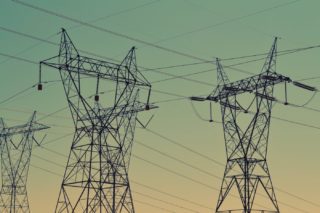-
Grid resilience to become even more essential as more of the economy electrified
Date posted:
-
-
-
Post Author
Patrick LaveryCombustion Industry News Editor
-
-
![power lines]()
An opinion piece by Reuters’ John Kemp has used the example of recent blackouts in Louisiana following Hurricane Ida to argue that electricity grids will need to become more resilient in the future. While they are currently essential not only in general for households and businesses, but also for oil and gas supply, water and sewerage, transport, communications, public safety and healthcare (all of which have backup generators to some extent), further electrification will expand this list. The rise of electric vehicles, for instance, will make vehicles more directly dependent on the grid, and further electrification of industry will also intensify its essentiality. Without increasing the resilience of the grid, economies will become more vulnerable to natural disasters and also grid attacks from hostile actors (be they physical or digital), not to mention human error and software complexity. As Kemp notes, too, “1% of diesel generators at nuclear power plants fail to start on demand and 15% fail after 24 hours of continuous operation. Hospital generators fail to start 10% of the time.” He cites past instances of prolonged power outages in North America effecting some people for weeks and even longer than a month. Such consequences will become more severe in the future, hence a need to focus on resilience, for instance by “undergrounding wires, replacing wooden poles with concrete ones, strengthening towers, stockpiling replacement transformers and raising substations above potential flood levels”, as well as building in “sufficient spare capacity and redundancy to make them more reliable and more resilient”. They are wise words indeed.

